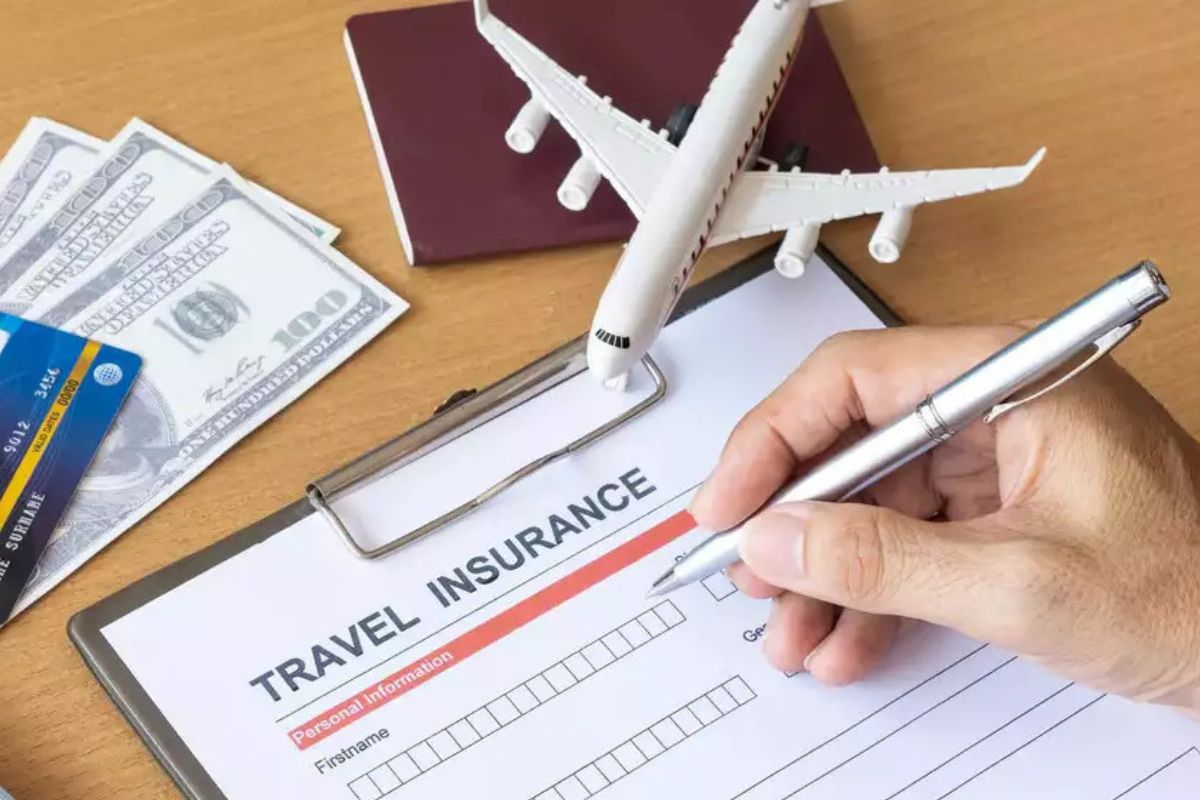Embarking on international adventures can be exhilarating, but it's crucial to prioritize your safety. Defensive foreign travel briefings provide essential knowledge and strategies to navigate potential risks and challenges that may arise during your travels. One essential aspect of staying safe while traveling is receiving a defensive foreign travel briefing. In this comprehensive guide, we'll delve into the importance of these briefings, when and how often you should seek them, and practical steps to ensure a secure and enriching journey.
Understanding the Need for Defensive Foreign Travel Briefing
In an increasingly interconnected world, international travel has become a common part of many people's lives. Whether it's for business, leisure, or study, venturing into foreign lands brings exciting opportunities and experiences. However, it also carries risks and uncertainties that can impact personal safety and security. A defensive foreign travel briefing is a crucial tool designed to mitigate these risks, equipping travelers with knowledge and strategies to navigate unfamiliar environments and potential challenges. This article explores the importance of receiving such briefings and how often they should be sought.
The Importance of Receiving Defensive Foreign Travel Briefings
1. Enhancing Personal Safety
Receiving a defensive foreign travel briefing is paramount to ensuring your personal safety while abroad. It provides insights into potential hazards such as local laws, political instability, health concerns, and natural disasters, allowing you to take proactive measures to mitigate risks.
2. Cultural Awareness and Respect
Cultural differences can often lead to misunderstandings or unintended offense. A defensive foreign travel briefing helps you understand local customs, traditions, and etiquette, enabling you to interact respectfully and foster positive interactions with the local community.
3. Emergency Preparedness
In unforeseen circumstances such as medical emergencies, civil unrest, or natural disasters, knowing how to respond effectively can be a lifesaver. A defensive foreign travel briefing equips you with essential emergency contacts, evacuation procedures, and crisis management strategies.
Why Are Defensive Foreign Travel Briefings Essential?
1. Ensuring Personal Safety
A defensive foreign travel briefing is essential for safeguarding the personal safety of travelers. It provides insights into local customs, traditions, and potential hazards that may not be immediately apparent. By being aware of their surroundings and understanding potential risks, travelers can take proactive measures to avoid dangerous situations.
2. Enhancing Cultural Awareness
Cultural differences can often lead to misunderstandings or unintended offenses. A defensive foreign travel briefing helps travelers navigate cultural nuances, etiquette, and social norms, enabling them to interact respectfully and avoid inadvertently causing offense.
3. Managing Health Risks
Different regions may pose varying health risks, from infectious diseases to environmental factors. A thorough briefing educates travelers on health precautions, required vaccinations, and access to medical care, empowering them to prioritize their well-being while abroad.
4. Responding to Emergencies
In unforeseen circumstances, such as natural disasters or civil unrest, knowing how to respond effectively is crucial. A defensive foreign travel briefing equips travelers with emergency contact information, evacuation procedures, and crisis management strategies.
How Often Should You Receive a Defensive Foreign Travel Briefing?
1. Before Every International Trip
Before jetting off to a new destination, make it a rule of thumb to undergo a comprehensive defensive foreign travel briefing. This pre-trip session equips you with up-to-date information about the specific country's safety situation, local customs, and emergency protocols.
2. When Traveling to High-Risk Areas
Traveling to regions with known security concerns or volatile situations warrants a specialized briefing. Whether it's a conflict zone or an area prone to political instability, a focused briefing provides critical information to mitigate risks.
3. After a Prolonged Gap in Travel
If you haven't traveled internationally for an extended period, a refresher briefing is advisable. Changes in travel advisories, regulations, or local conditions may have occurred during your hiatus.
4. When Traveling for Different Purposes
The purpose of your trip matters. If you're traveling for leisure, business, or study, the risks and considerations may vary. Tailoring your briefing to the specific context ensures relevant information is provided.
5. Periodic Refresher Courses
Even if you're a seasoned traveler, regular reinforcement of your safety knowledge is essential. Consider participating in periodic refresher courses, which can help you stay vigilant and well-prepared, no matter how experienced you are.
6. Significant Changes in Geopolitical Landscape
Global events can dramatically alter the safety landscape of a region. In such cases, it's imperative to receive an updated defensive foreign travel briefing to understand the potential risks and precautionary measures associated with your travel plans.
Implementing Effective Defensive Foreign Travel Briefings
- Choose Reliable Sources: Ensure that the training is conducted by credible organizations with expertise in travel safety and security.
- Customize the Content: Briefings should be tailored to the specific destination and the nature of your travel (e.g., business, leisure, humanitarian work).
- Interactive Learning: Engage in discussions, case studies, and simulations to enhance your understanding and decision-making skills.
- Emergency Protocols: Familiarize yourself with emergency contact information, local authorities, and available resources at your travel destination.
Additional Considerations for Safe Travel
1. Travel Insurance
Investing in comprehensive travel insurance adds an extra layer of protection to your journey. It covers unexpected events such as trip cancellations, medical emergencies, and lost belongings.
2. Local Laws and Regulations
Familiarize yourself with the legal requirements and regulations of the nation you are traveling to. Ignorance of local laws is not an excuse, and adherence to them ensures a trouble-free experience.
3. Health Precautions
Consult with a healthcare professional to understand any recommended vaccinations or health precautions specific to your destination.
4. Communication and Connectivity
Ensure you have reliable means of communication, including local emergency contact numbers and access to mobile networks or Wi-Fi.
The Role of Technology in Defensive Foreign Travel Briefings
With advancements in technology, defensive foreign travel briefings have evolved beyond traditional methods. Mobile apps, websites, and online resources provide up-to-date information, travel advisories, and real-time alerts. Travelers can access crucial details at their fingertips, enhancing their preparedness and response capabilities.
A Collaborative Approach to Safety
Defensive foreign travel briefings often involve collaboration between various entities. Government agencies, travel companies, and security experts contribute to creating comprehensive and accurate briefings. This collaborative effort ensures travelers receive reliable information to make informed decisions.
Cultural Sensitivity and Communication Skills
In addition to practical safety measures, a defensive foreign travel briefing emphasizes the importance of cultural sensitivity and effective communication. Understanding local customs and norms fosters positive interactions and minimizes misunderstandings.
Continuous Learning and Adaptation
The world is dynamic, and travel conditions can change rapidly. Regularly seeking defensive foreign travel briefings keeps you updated on evolving situations and equips you to adapt to unforeseen circumstances.
Conclusion
As a responsible traveler, your safety should always be a priority. Regular defensive foreign travel briefings empower you with the knowledge and confidence to navigate any situation that may arise during your journeys. Remember, staying informed and prepared can ultimately make all the difference in ensuring a safe and memorable global adventure. So, before you set out on your next international escapade, invest the time in receiving the proper training – your well-being is worth it. Safe travels!


